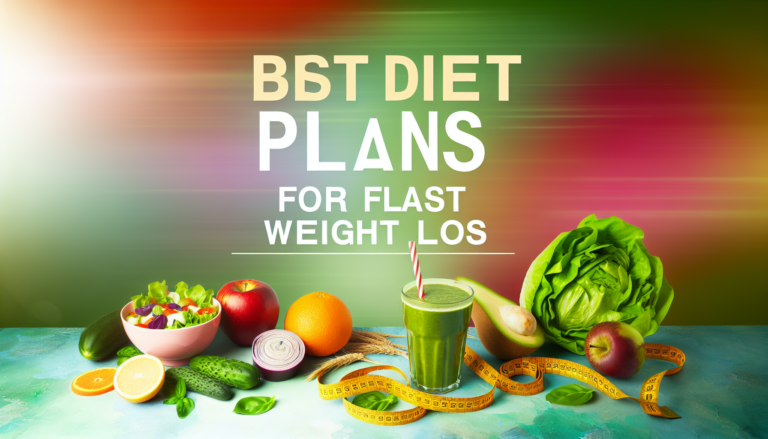Welcome to our in-depth review of 10 popular diets that have taken the nutrition world by storm. In today’s health-conscious society, choosing the right diet can feel overwhelming. With the plethora of options out there, how do you determine which diet aligns with your goals and lifestyle? Our comprehensive guide will explore well-known diet plans, evaluate their benefits and drawbacks, and help you decide which one is right for you. This topic is particularly crucial as every individual seeks a sustainable way to maintain health, manage weight, or even combat certain health conditions. Understanding these diets can empower you to make informed decisions that are best suited to your personal nutrition needs.
The Mediterranean Diet: Heart-Healthy and Sustainable
Ranked consistently as one of the healthiest dietary patterns, the Mediterranean diet is inspired by the eating habits of countries bordering the Mediterranean Sea. It emphasizes whole foods such as fruits, vegetables, whole grains, and healthy fats, particularly from olive oil.
Benefits of the Mediterranean Diet
Studies have shown that adhering to this diet can lead to reduced risks of cardiovascular disease, diabetes, and overall mortality. The focus on heart-healthy fats like omega-3 fatty acids helps in enhancing brain function and reducing inflammatory markers.
Challenges and Considerations
Despite its advantages, adapting to the Mediterranean diet requires a shift in purchasing and preparing food, which some may find initially challenging. It also lacks strict portion control, which could potentially be a pitfall for weight loss seekers.
The Keto Diet: High-Fat, Low-Carb Revolution
The keto diet has become synonymous with rapid weight loss by promoting a low-carb, high-fat intake that drives the body into ketosis, a state where fat is turned into fuel.
Pros of the Keto Diet
Many people have experienced quick weight loss and improved blood sugar levels. Additionally, the fuel-switching process can benefit endurance athletes.
Cons and Health Warnings
This diet can be difficult to sustain long-term due to restrictive carb allowances. There can also be potential health risks like vitamin deficiencies or increased LDL cholesterol levels, highlighting the importance of a balanced approach. Before embarking on a keto journey, reviewing this complete guide to the keto diet on our site is recommended.
Paleo Diet: Eating Like Our Ancestors
The Paleo diet is structured around consuming foods presumed to be eaten by our Paleolithic ancestors, focusing on lean meats, fish, fruits, vegetables, nuts, and seeds, while excluding processed foods, grains, and legumes.
Benefits of Going Paleo
Advocates argue that it encourages the consumption of whole foods, reduces sugar intake, and eliminates additives and chemicals. This can result in improved glucose tolerance and better metabolic health.
Potential Drawbacks
By excluding entire food groups, followers may experience nutrient deficiencies, such as lack of calcium and vitamin D. Additionally, this diet’s meat-centric approach may not suit everyone’s ethical beliefs or dietary preferences.
Intermittent Fasting: Not Just a Diet, But a Lifestyle
Intermittent fasting (IF) isn’t a diet in the traditional sense but rather an eating pattern that cycles between periods of fasting and eating. Common methods involve daily 16-hour fasts or fasting for 24 hours, twice a week.
Headlines on Intermittent Fasting
IF is praised for its potential benefits, including weight loss, improved metabolism, and possibly even a longer lifespan. Studies suggest fasting can enhance insulin sensitivity and muscle repair capabilities.
Considerations Before Starting IF
Not everyone may thrive on this regimen. The hunger and energy levels experienced during fasting may not be suitable for all, especially those with underlying health conditions. It’s crucial to listen to your body and consult a healthcare provider where necessary. Dive deeper into intermittent fasting benefits in our blog.
The Vegetarian and Vegan Diets: Compassionate and Health-Focused
As plant-based eating gains popularity, the vegetarian and vegan diets offer significant health benefits, such as reduced body weight, lower blood pressure, and improved heart health.
Why Consider Plant-Based Diets?
A neon-colored spotlight is currently on plant-based diets due to their potential health benefits, ethical considerations, and environmental impact. They are rich in essential nutrients found in fruits, vegetables, legumes, nuts, and seeds.
Potential Nutrient Gaps
Balancing macronutrients properly is key to avoiding deficiencies in protein, iron, calcium, vitamin B12, and omega-3 fatty acids. For insights into filling nutritional gaps, check our plant-based nutrition guide.
Conclusion: Picking the Right Diet for You
Choosing the right diet is a personalized decision that depends on your unique health needs, lifestyle, and goals. Each diet we’ve reviewed offers distinct advantages and challenges. Reflect on what aligns best with your nutritional needs and values.
Remember, the ultimate goal of any diet should be to improve your health and well-being sustainably. If you have any medical conditions, seek advice from a healthcare professional when selecting a diet that works for you.
We encourage you to share your thoughts, experiences, or ask questions in the comments below. Don’t forget to subscribe for the latest updates on nutrition and health! By exploring these options, you’re taking a significant step toward a healthier, more informed you.






Leave a Comment